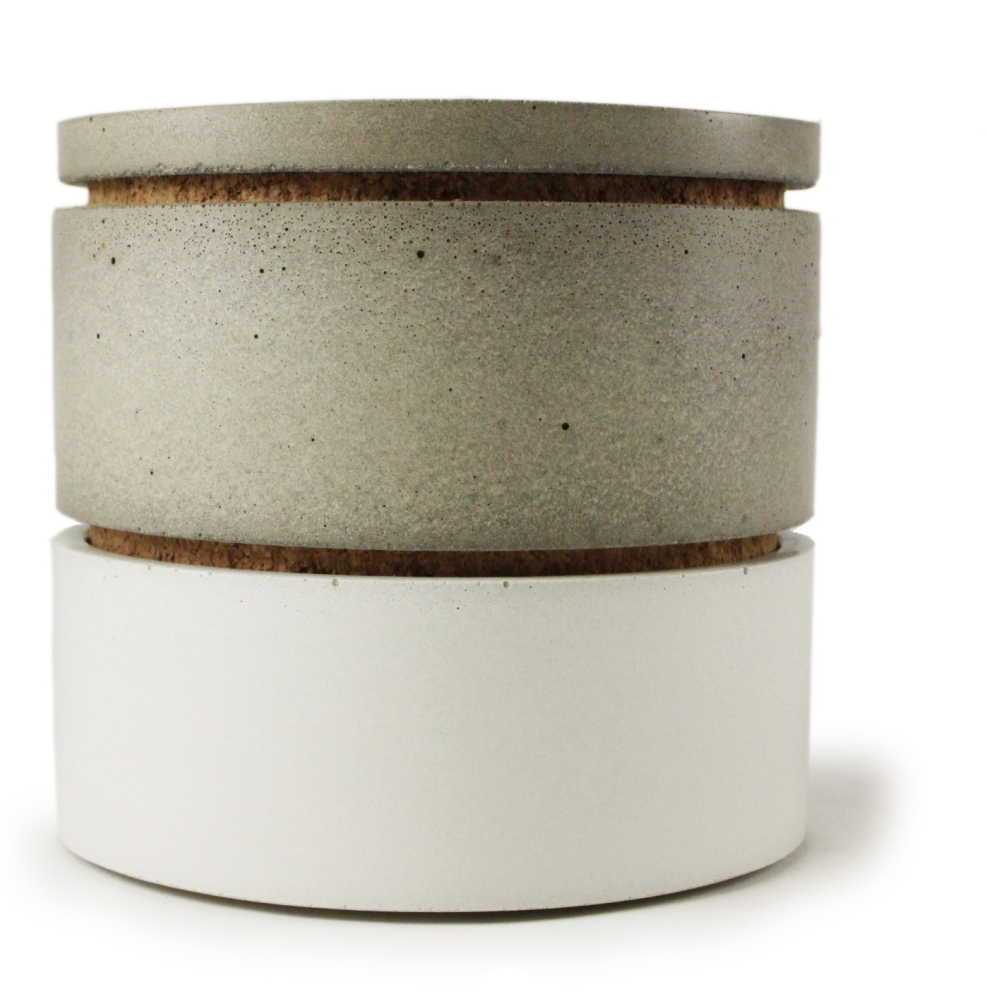Jordan Castro was a construction manager and general contractor in Massachusetts when the economy came crumbling down in 2007.
He began looking around for something else he could do with his knowledge of concrete mix design and decided to try developing a mix he could use on small products, which he would then sell online.
“It took me several years to develop a concrete product that wouldn’t break and that didn’t have a lot of chemicals in it,” Castro said.
Lack of chemicals was important because he wanted to use the mix to make kitchen products and other home goods that might come into contact with food – objects such as salt cellars, spice caddies, salt-and-pepper shakers and coasters. Eventually he found success using the dust that’s created from grinding granite countertops.
“We had started to do a lot of work for countertop producers when I was a construction manager,” Castro said, “and I noticed that when they grind granite down for a kitchen countertop, they use these really, really fine diamonds. What happens is there’s a slurry that’s produced of the granite. It’s a really fine, fine dust. This dust typically just gets thrown away, and it gets thrown away in big cakes.”
Castro started to test the material in his experimental mixes and found it made the concrete very hard, gave it a nice feel and reduced cracking.
Castro says when he developed the mix, he didn’t really care whether it contained recyclable materials, but now the concrete contains at least 50 percent recycled dust, and in some cases up to 80 percent. He used the material to make his first product – a salt cellar– and started showing it around to friends. Next came selling on Etsy.com and trips to trade shows.
Castro and his wife, Annastasia, then launched Culinarium, a company that sells concrete kitchenware. That was four years ago; last year, they decided to move to Maine. All of their products are now handmade in a manufacturing facility inside the Pepperell Mill in Biddeford.
By far the most popular item is the small salt cellar ($15), which comes in gray and white and can be engraved for weddings or other occasions. The larger version costs $34, but Castro said he is working to lower prices.
Castro has tried making them in different colors, but customers seem to prefer the stark neutrals.
“I guess austere is a good word for them,” Castro said. “They’re very plain, very simple.”
Send questions/comments to the editors.




Success. Please wait for the page to reload. If the page does not reload within 5 seconds, please refresh the page.
Enter your email and password to access comments.
Hi, to comment on stories you must . This profile is in addition to your subscription and website login.
Already have a commenting profile? .
Invalid username/password.
Please check your email to confirm and complete your registration.
Only subscribers are eligible to post comments. Please subscribe or login first for digital access. Here’s why.
Use the form below to reset your password. When you've submitted your account email, we will send an email with a reset code.